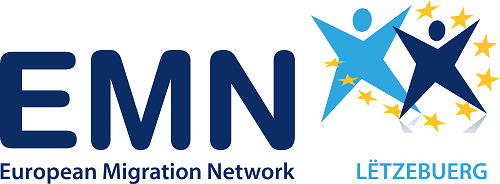The number of third-country national women in Luxembourg has increased steadily over the last years, representing 8,1% of the total female population in 2020. Most first residence titles issued to third-country national women were based on family reasons. Depending on the reasons for immigration, the most common countries of origin were India, the U.S.A., and China (to pursue remunerated activities), as well as Syria, Eritrea, the Philippines (for ‘other’ reasons [1]), and Brazil (for family reasons).
While third-country national women in Luxembourg comprise a very diverse population, occupying jobs in both high-skilled and low-skilled employment sectors, they experience several challenges. Despite higher levels of education, they are more exposed to overcrowded housing, lower household income, lower activity rates, and higher unemployment rates than Luxembourgish women.
Luxembourg follows a mainstream approach regarding integration. According to the Law of 16 December 2008 on the integration of foreigners in the Grand Duchy of Luxembourg, integration is a two-way process that includes both the foreigner and the Luxembourgish society, thereby aiming at all non-Luxembourgish nationals (EU citizens and third-country nationals alike), independent of their gender. However, both national and EU funds may finance measures to support the integration of third-country national migrant women.
The Luxembourgish Integration Law is currently undergoing a process of reform. Throughout this process, the Department of Integration has consulted a wide array of stakeholders and commissioned the OECD to conduct a study on the functioning of the Luxembourgish integration system. Based on the collected input, the Department of Integration is currently drafting a bill to submit to Parliament in 2022. The reform of the Integration Law will entail a revision of the National Action Plan on Integration and the used terminology to reflect the transversal approach towards integration in Luxembourg.
[1] ‘Other’ reasons include international protection status, refugee status and subsidiary protection, humanitarian reasons, residence only, other reasons not specified, unaccompanied minors, victims of trafficking of human beings.
Do not hesitate to consult the full study for all the details (attached below along with the statistical annex).

